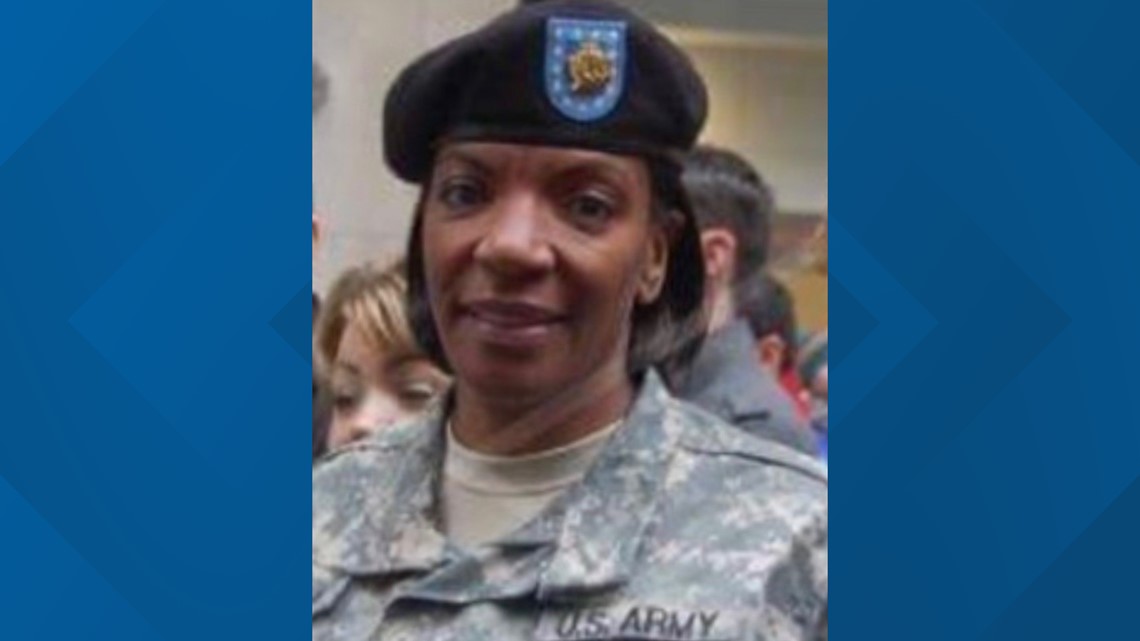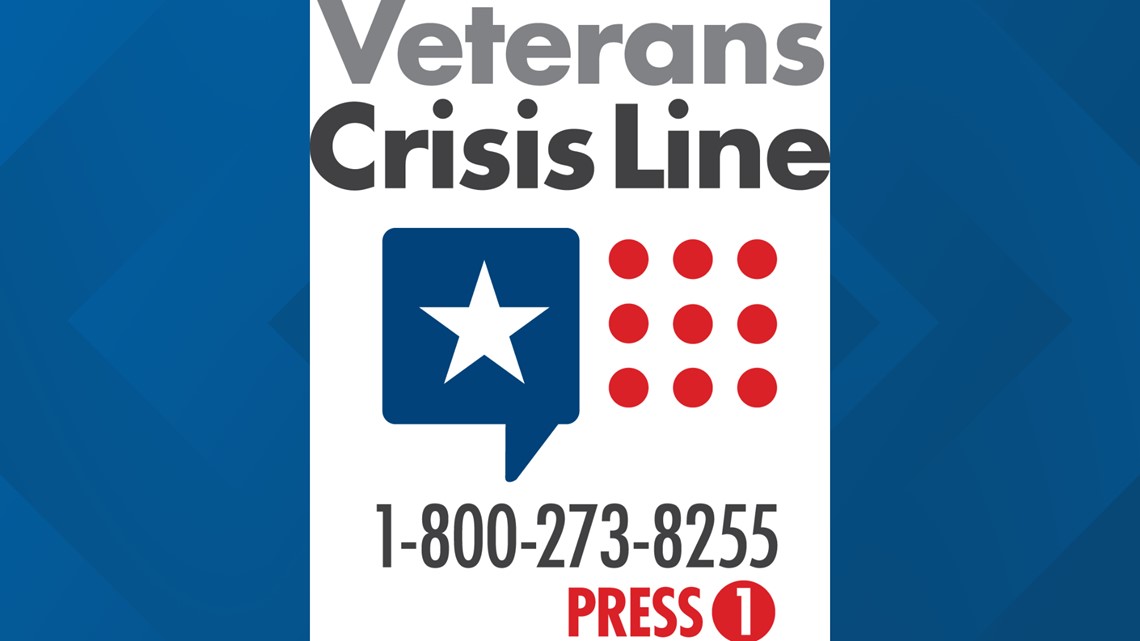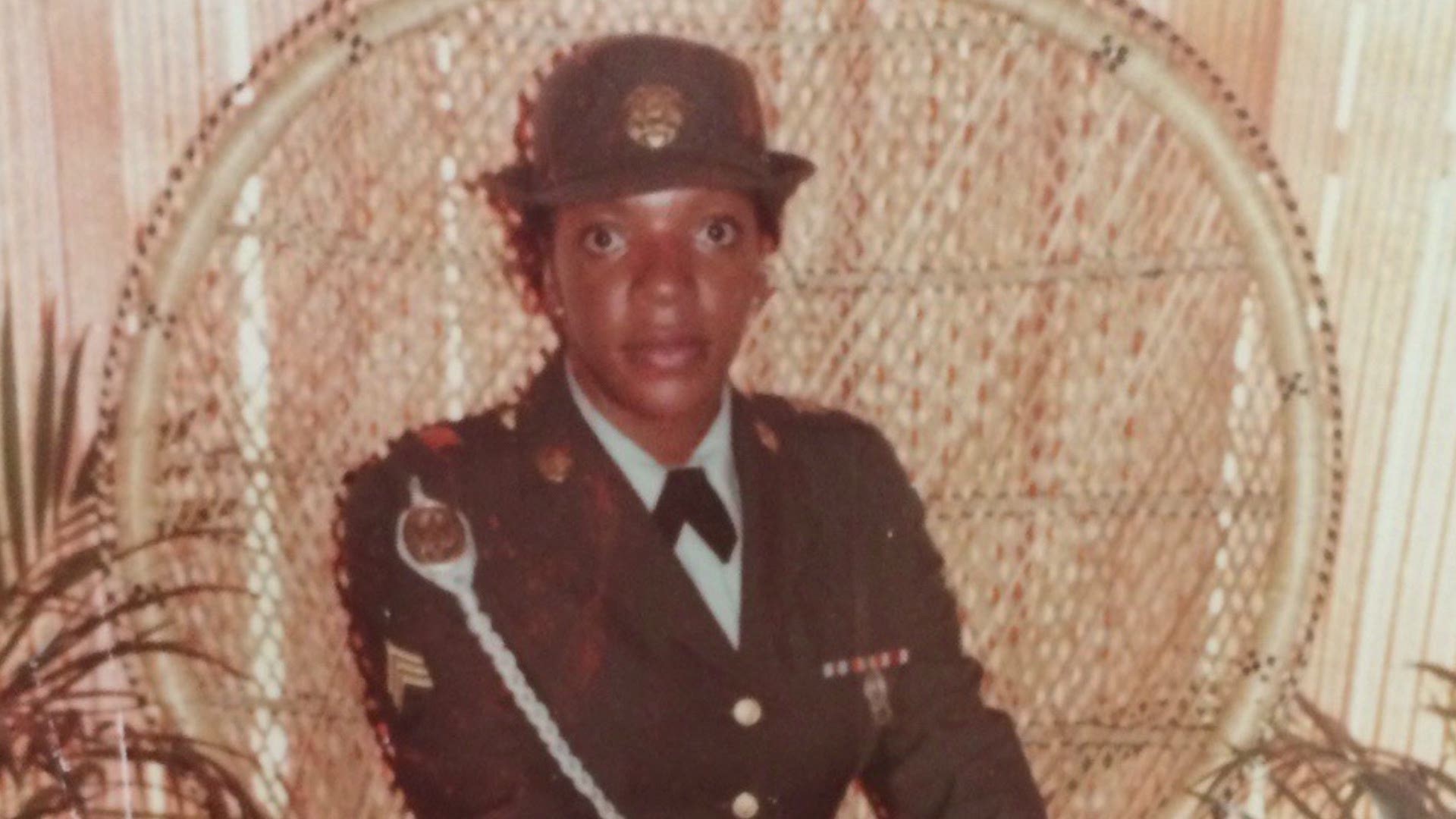TEMPLE HILLS, Md. — Army veteran Natalie Hodge knows what she lost when she left the service: her self-respect.
"I lost my self-esteem and I was very suicidal," she said. "It was very, very challenging for me.”
Hodge said he tried taking her life six times after leaving the military.
“Those were very dark moments for me, again, I didn't believe in who I was,” she said. “I lost my identity.”
After many years of suffering, Hodge found light in her life through therapy. She now has a full-time job working for the federal government and finds stress relief working out and walking her two rescue dogs.


But what she can't imagine is still being in that dark place, already feeling alone and isolated, and, on top of that, dealing with a global pandemic.
“I had sentenced myself to a wall-less, door-less prison in my brain, so being home right now, if I was not in a better place in me, that's the total recipe,” Hodge said “That's the total recipe to take your life.”
So, Hodge has organized Zoom calls with her veteran groups to talk about these concerns. She said she hears from people who have put their lives on the line to serve our country and now say they feel even more alone and are afraid to reach out for help.
“Being alone definitely is very, very challenging, and when you don't feel that you have any resources, that's what hurts the most,” she said.


We asked Hodge if she thinks the Department of Veterans Affairs is doing enough to help veterans during this challenging time.
“I've been seeing a lot of emails and that's really encouraging to have those,” she said. “What about the ones that don't have email?”
She feels regular phone calls would be an even better way to reach this vulnerable population.
We brought the idea to Dr. Matthew Miller, the director of VA's suicide prevention program.
“That's a great idea and definitely I agree,” he said. “There's one aspect of it that says, 'Hey, call us, we're here,' but there's really another very important and necessary aspect, which is backing that up and reaching out, not just waiting necessarily for that call to come in.”
Miller said the calls are coming into the Veteran Crisis Line. At the start of March, less than 1% of them were COVID-19-related. The numbers kept increasing. By the end of that month, between 20-25% of the incoming calls centered around the coronavirus.
According to VA officials, they're adapting. They've encouraged telehealth and video visits, sent out millions of texts through the Vet Text program, added resources to the crisis line and transitioned those 700 staff members to telework.
“The safer that our staff are, the safer that the mission is for the Veterans Crisis Line and the more our staff is positioned to do what they want to do, which is answer those calls coming in,” Miller said.
We also asked Miller if he feels his agency is doing enough to reach out to vets during this time.
“I think we're on the front edge of this, also, though always willing to watch, learn, grow and improve along the way,” he responded.
Miller explained now, the VA is also looking into increasing the capacity for telehealth and video connections.
As Natalie continues to connect with her fellow veterans, she appreciates the recognition this is a work in progress.
“Us as soldiers, the ones who've given our lives, given our time for our service for this country, I think more does have to be done,” she added.
If you get one thing from this story it's this -- if you need help, the Veterans Crisis Line is still answering your calls amidst this pandemic. Here is the number to call: 1-800-273-TALK, then press 1.
Here are also some resources Natalie says helped her through difficult times:
Armed Services Arts Partnership (ASAP) - www.asapasap.org
Operation Tohidu -Melwood - https://www.melwood.org/veterans-services/old/program-overview
Spirit Of Faith Christian Center (SOFCC) - https://spiritoffaith.org/
Together Program for Financial Literacy - info@togetherprogram.org |
Vets For Pets - www.petsforvets.com - (FREE for Veterans)

